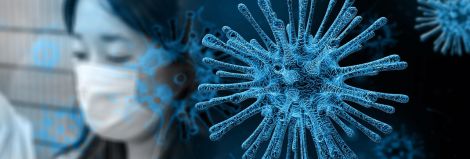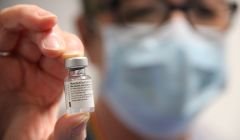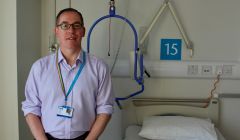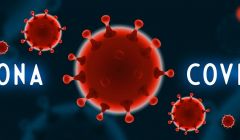Coronavirus / NHS chief hopeful of some restrictions being eased in the summer
Michael Dickson also talks level four, Christmas Day mixing and Viking Energy construction workers
THE CHIEF executive of NHS Shetland says he expects that some coronavirus restrictions could ease around summertime after mass vaccination is rolled out.
Michael Dickson said it is “not unreasonable to say that it is likely that all of the FACTS [guidance] will stay in place until the bulk of the population has received the vaccination”.
The FACTS guidance includes social distancing, face coverings and hand hygiene.
Dickson said the vaccine gives the recipient protection against the virus, but “we can’t absolutely say that if you are vaccinated, you won’t transmit the virus”.
The health chief felt that once the impact of lockdowns and the positive effect of the vaccination programme in terms of hospital admissions and deaths becomes evident then the easing of restrictions could be brought forward.
“But I don’t think we’re going to get to a position where we’re back to January 2020 any time before summer,” he said.
Dickson added that the more people receive the vaccine, the greater chance of herd immunity. “The virus needs a friendly carrier to be able to move from one person to another,” he sad.
“If it has no space to go off and infect someone else, that’s in essence where the herd immunity issue comes from. So it can’t gain any traction in a community.
“We know from outbreaks of things like measles that uptake of the vaccine is critical, not just to protect yourself, but to protect your loved ones in the community.
“The more people take the vaccine, the quicker we can get back to a position where we can be confident that taking off your face mask, not having to adhere to social distancing…we can step those measures down knowing it won’t have any adverse impact on those people who may have underlying conditions who may not be able to take the vaccine.”
Become a member of Shetland News
On some people’s calls for Shetland to be moved into level four, Dickson told Shetland News that there are a range of factors that would need to be taken into account for the isles to drop down a tier.
He said “it’s a really difficult call – ultimately that call is made by the Scottish Government”.
“But there are additional things that come with level four, additional impacts on the economy, additional impacts on people’s ability to move and work in Shetland. And this is a difficult time.
“With the outbreak being broadly under control, I would rather we try and eliminate the virus from a level three position rather than escalate to level four. I’ve got confidence we can do this from a level three position.”
As previously reported, Dickson said that some recent Covid cases in Shetland are not being linked back to a positive case or travel.
He suggested there are two options: keep having the case tally rise, and risk a further outbreak.
“Or we put a bit of extra effort in…if we take the opportunity to reduce our social contacts to an absolutely minimum, to avoid household mixing at all times, to avoid crowded places, to wear our face coverings, keep our hands clean and really stick with it, we can take the choice to try and eliminate the virus from the isle,” Dickson said.
“That is my preferred choice.”
The health chief added that NHS Shetland is not seeing “huge numbers” of positive cases linked to the slight easing of household mixing restrictions on Christmas Day.
“I think often we look back at these things and go, ‘well that was actually a little bit fortunate’,” Dickson said.
“Had we had the north mainland cases even a couple of days later, or even just after Christmas, I think we probably would have felt a significant impact of Christmas Day mixing, but I think testament to the Shetland population, as soon as those cases started to come in, people reflected and said ‘you know, maybe this year we won’t do it’.”
On the subject of construction workers coming to Shetland to work on the Viking Energy wind farm and transmission link projects, Dickson said the health board is recommending people reduce their social contacts for 10 days when they arrive in the isles.
It was announced earlier this month that all workers coming from the mainland will now be tested, but some in the community have called for stricter measures.
“I think it is a difficult situation, because the ideal would be that there would be a 10 day self isolation period when anybody arrives on Shetland, but how practical is that? Dickson said.
“There’s never a perfect solution, because if we did that and say a ferry broke down, how viable is it that we would get somebody to come up and isolate for 10 days to spend a couple of hours fixing a part on a ferry?
“If we stick to the FACTS, we can reduce the spread of the virus with the aim of eliminating it, regardless of whether people are travelling or not.”
Become a member of Shetland News
Shetland News is asking its readers to consider paying for membership to get additional perks:
- Removal of third-party ads;
- Bookmark posts to read later;
- Exclusive curated weekly newsletter;
- Hide membership messages;
- Comments open for discussion.
If you appreciate what we do and feel strongly about impartial local journalism, then please become a member of Shetland News by either making a single payment, or setting up a monthly, quarterly or yearly subscription.















































































